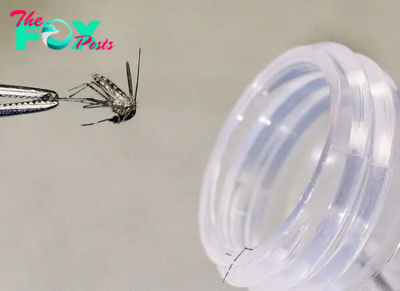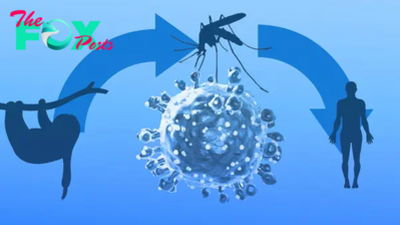Health
Deadly 'triple E' kills New Hampshire man — what is eastern equine encephalitis?
A mosquito-spread virus nicknamed "triple E" recently killed a man in New Hampshire and sickened several people in other Northeastern states. The Massachusetts town of Plymouth recently began closing its public parks between dusk and dawn to help cut the risk of people catching the infection.
So what is triple E, and is it new to the northeastern U.S.?
Triple E is another name for eastern equine encephalitis (EEE), a potentially deadly viral illness that people can catch from mosquitoes. The virus behind the disease is called the EEE virus, or simply EEEV.
The disease is called "equine" because horses can also catch the viral illness, and in fact, EEE was first discovered among Massachusetts horses in 1831. The first human cases of the disease were documented about a century later, and since then, sporadic cases and clusters of infection have occurred, primarily along the Atlantic and Gulf coasts in the summer. Although EEE is rare, it is considered endemic to the U.S.
Related: The skin microbiome could be harnessed as mosquito repellent, study hints
In recent years, there have been between one and 15 cases a year nationwide. 2019 was a notable exception, with 38 cases, but it's not clear why so many EEE cases were detected that year.
This year, various states — including New Hampshire, Vermont, Massachusetts and New Jersey — each reported their first case of EEE in several years. In addition, a person was hospitalized in Wisconsin after catching the virus in a New England state, The New York Times reported. A total of six cases have been reported so far in 2024, although only four have been listed on the Centers for Disease Control and Prevention (CDC) website so far. (This lag is expected because the CDC has to confirm each case.)
-

 Health16h ago
Health16h agoCOVID-19, flu and RSV shots − an epidemiologist explains why all three matter this fall
-

 Health16h ago
Health16h agoGot an unaffordable or incorrect medical bill? Calling your hospital billing office will usually get you a discount
-

 Health20h ago
Health20h agoParenting Is More Stressful Than Ever. Here’s How to Cope
-

 Health1d ago
Health1d agoArctic expedition uncovers deep-sea microbes that may harbor the next generation of antibiotics
-

 Health1d ago
Health1d agoRare Mosquito-Borne Disease Causes First Death in New Hampshire
-

 Health1d ago
Health1d ago9 Weird Symptoms Cardiologists Say You Should Never Ignore
-

 Health1d ago
Health1d agoThe Nuremberg Code isn’t just for prosecuting Nazis − its principles have shaped medical ethics to this day
-

 Health1d ago
Health1d agoEverything to Know About the Oropouche Virus, Also Known as Sloth Fever























